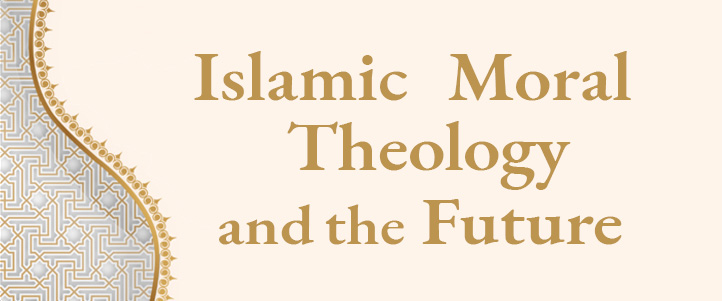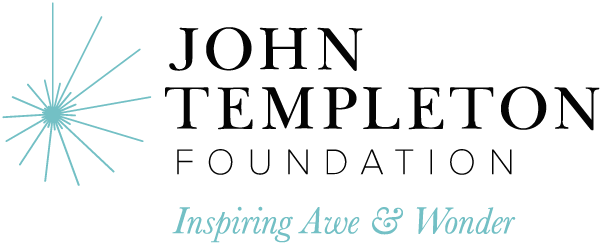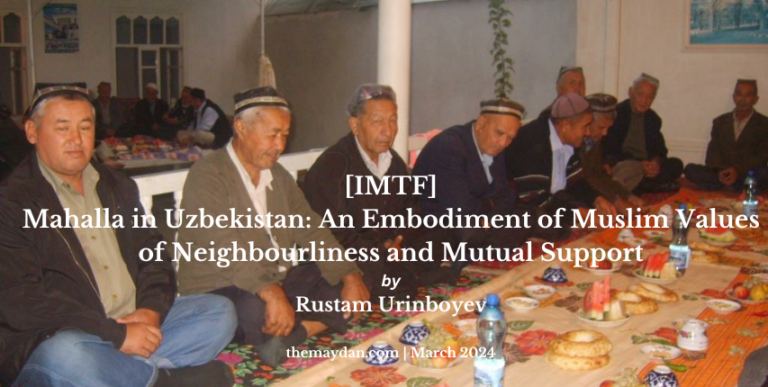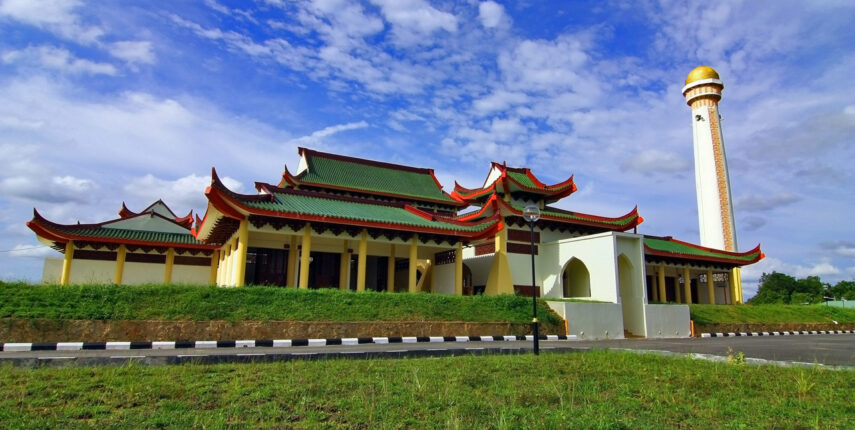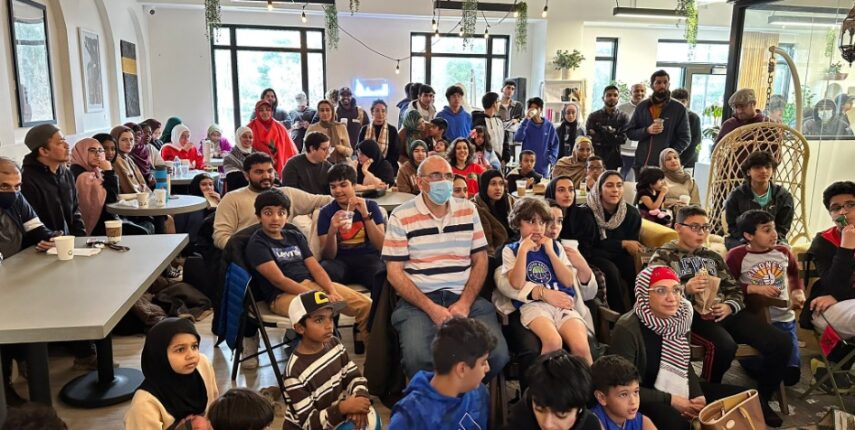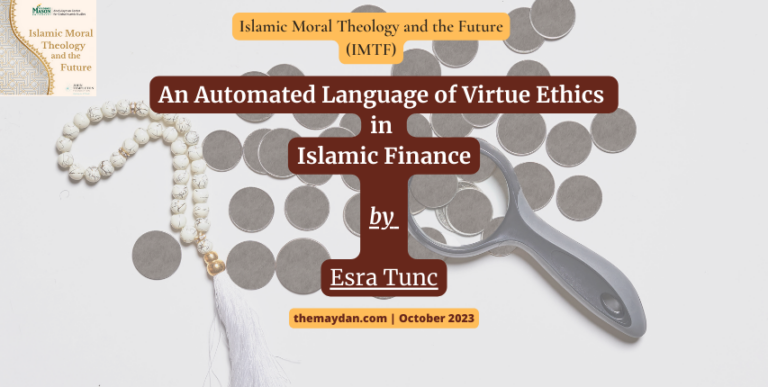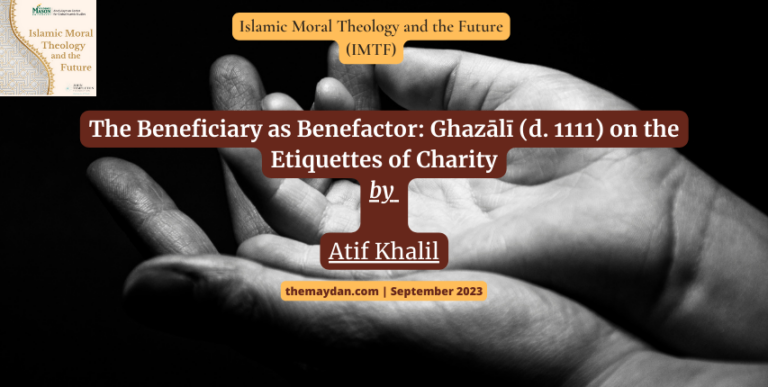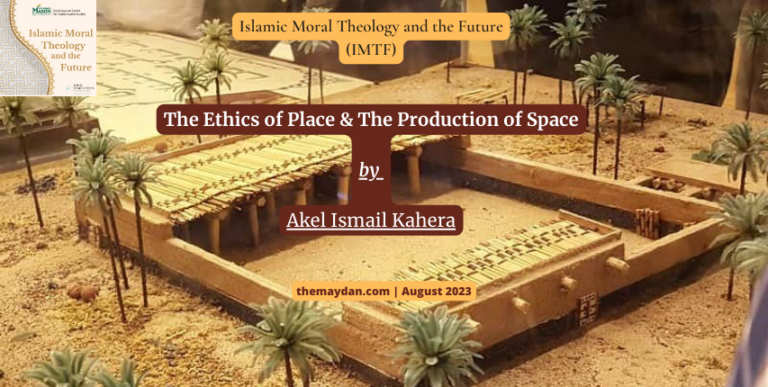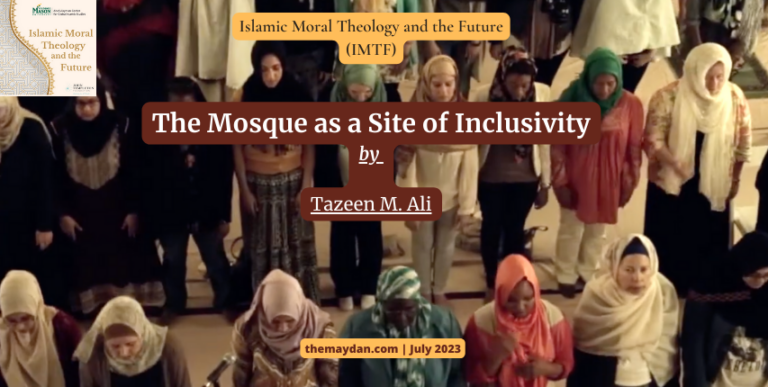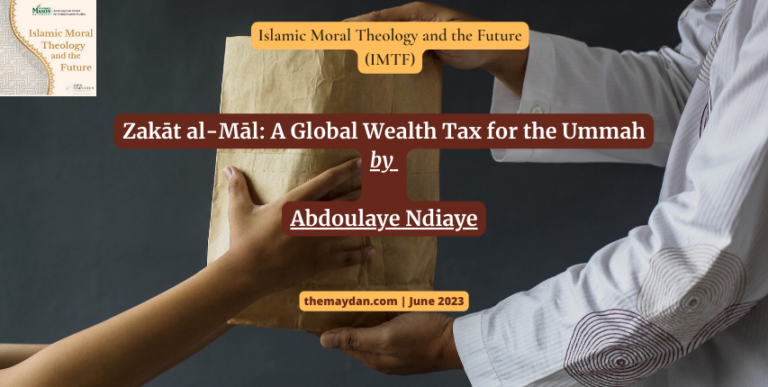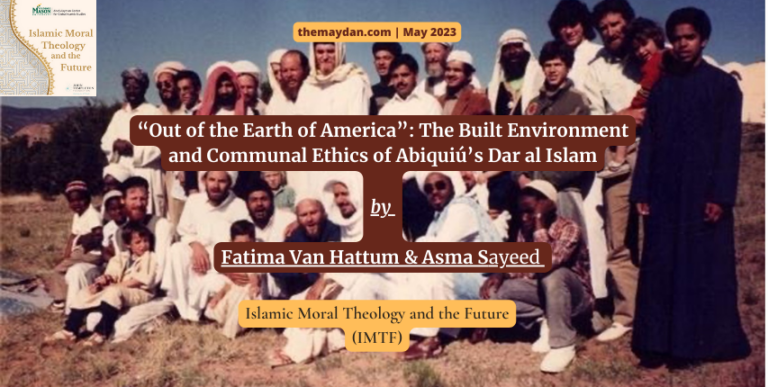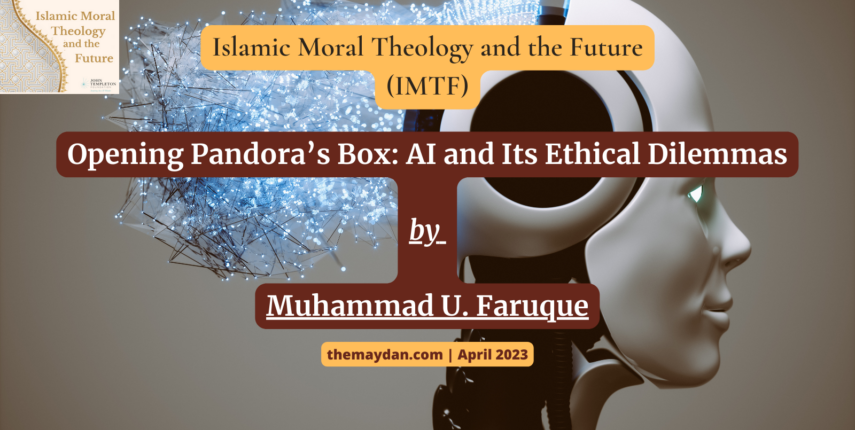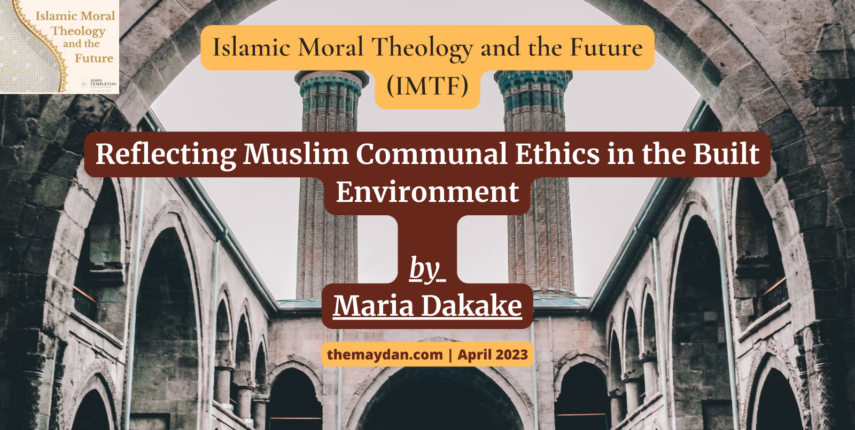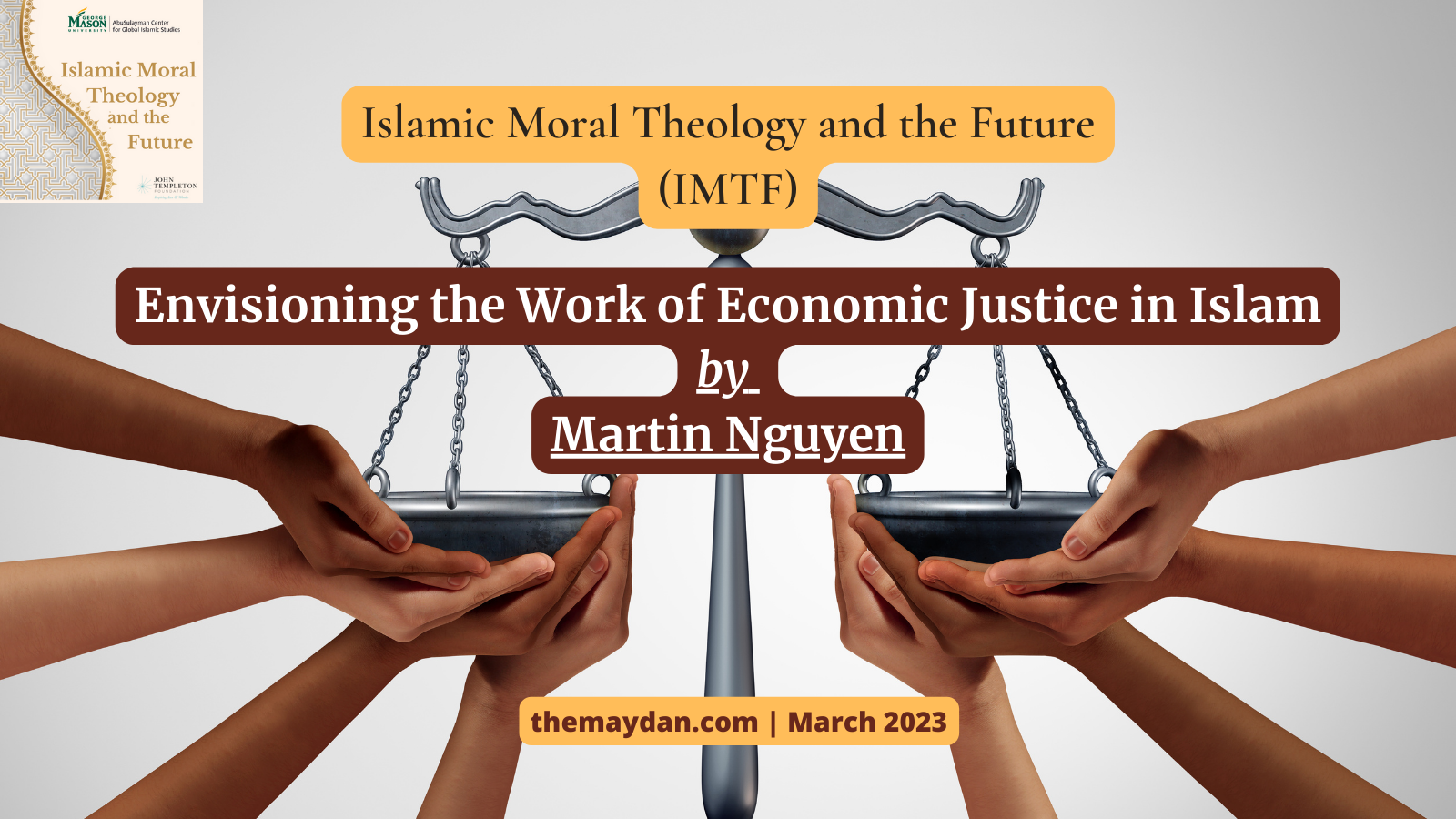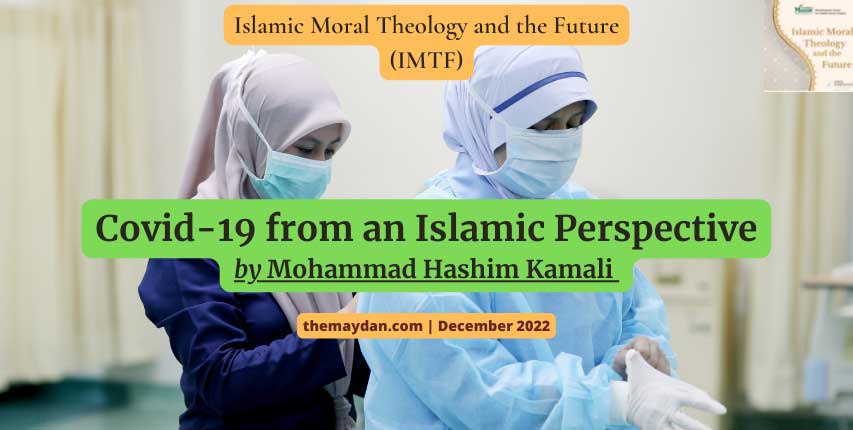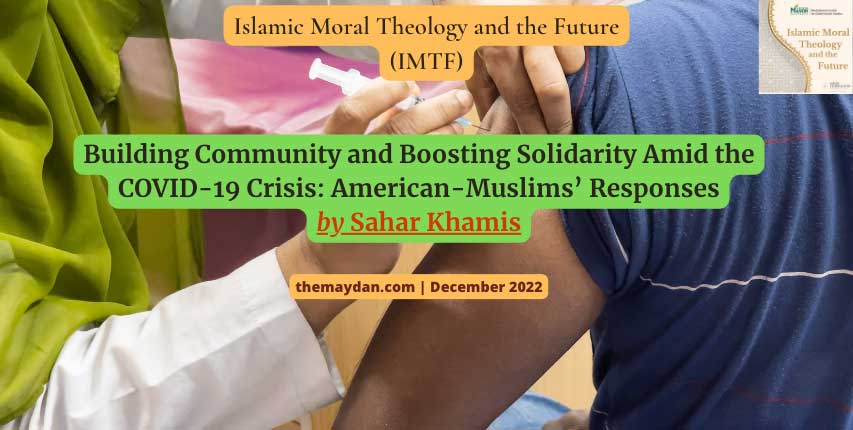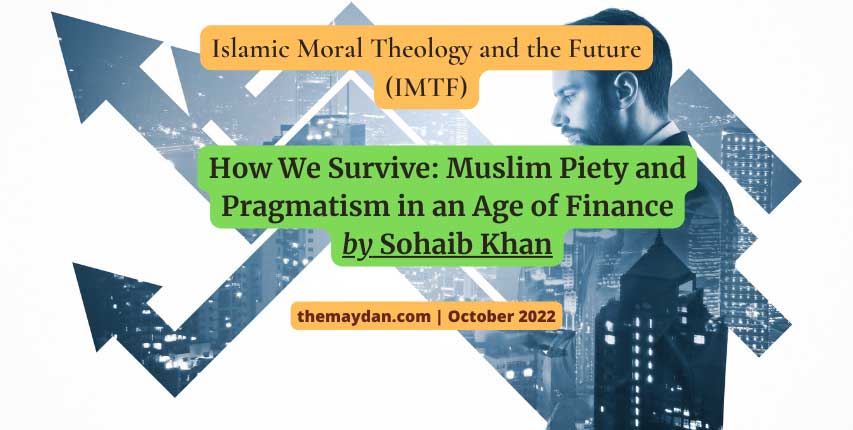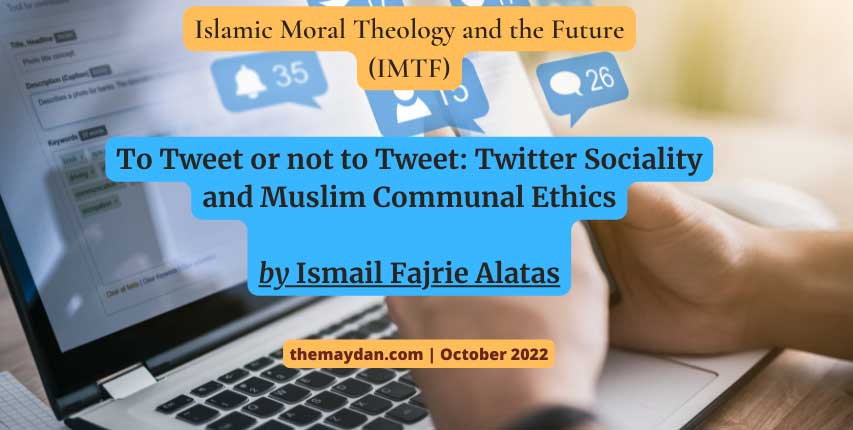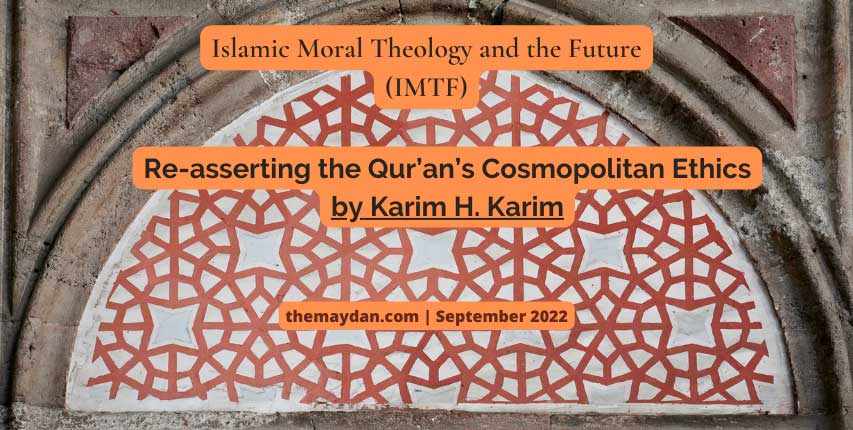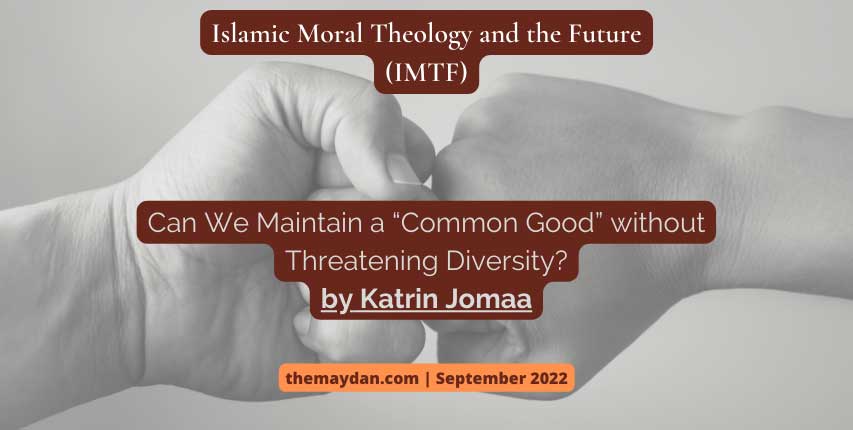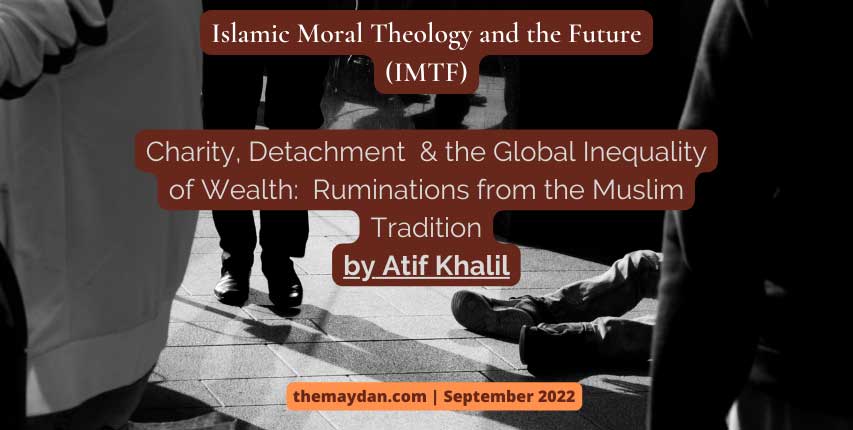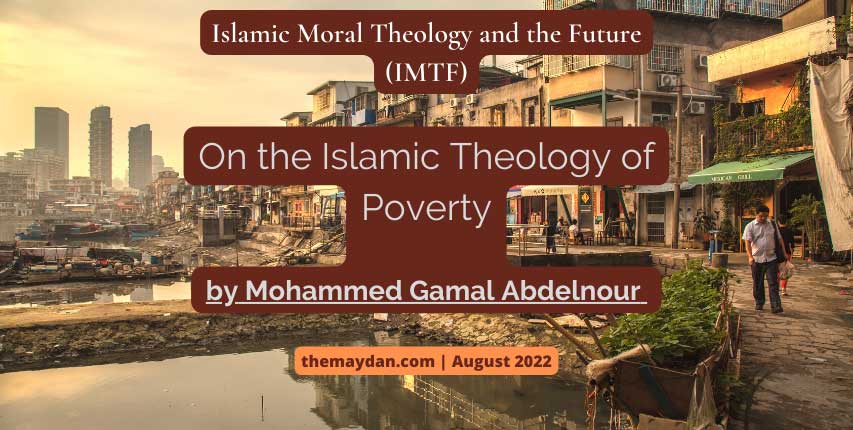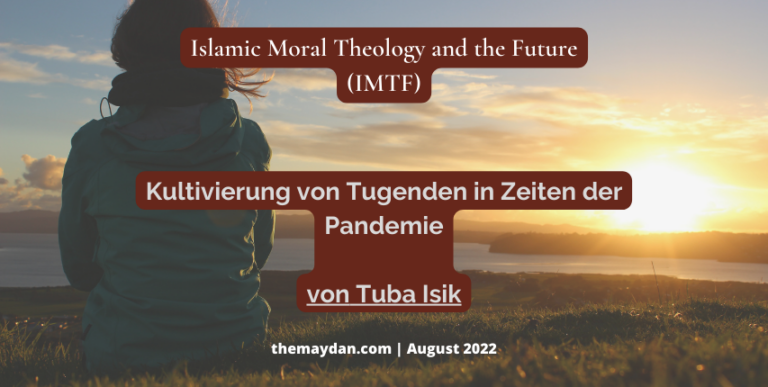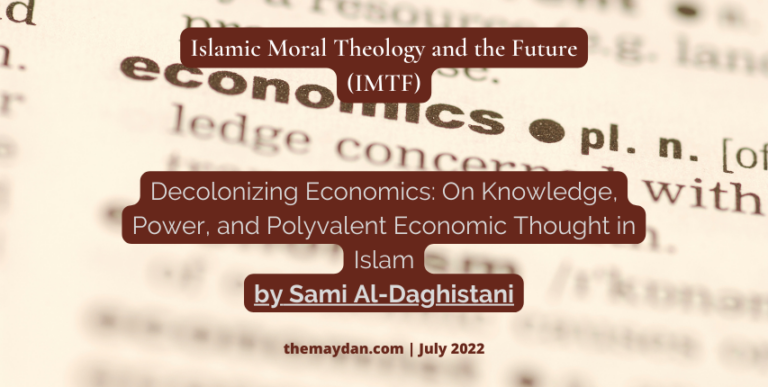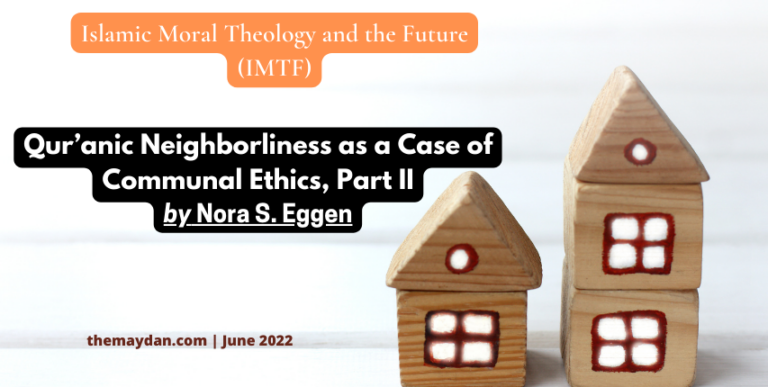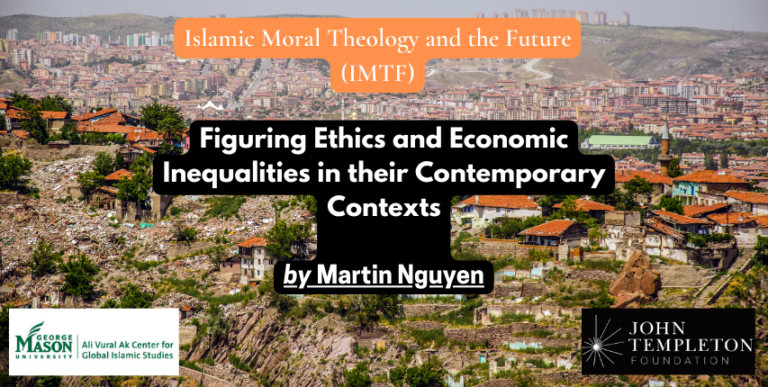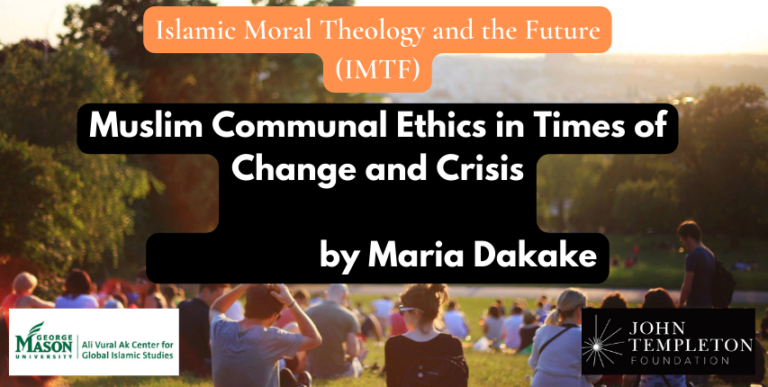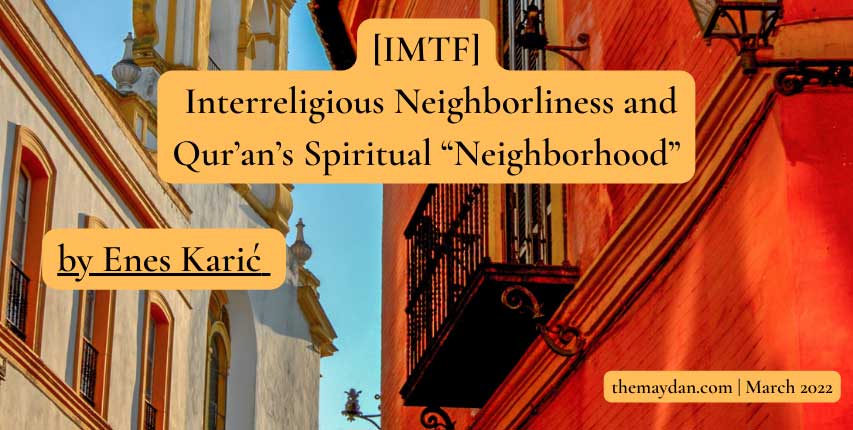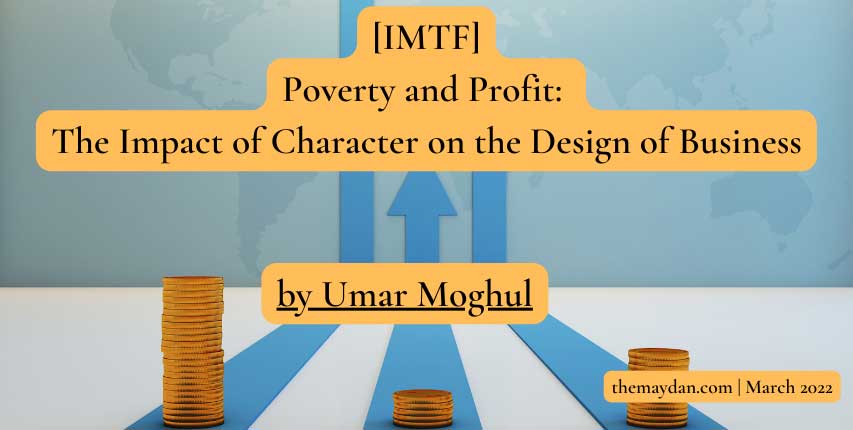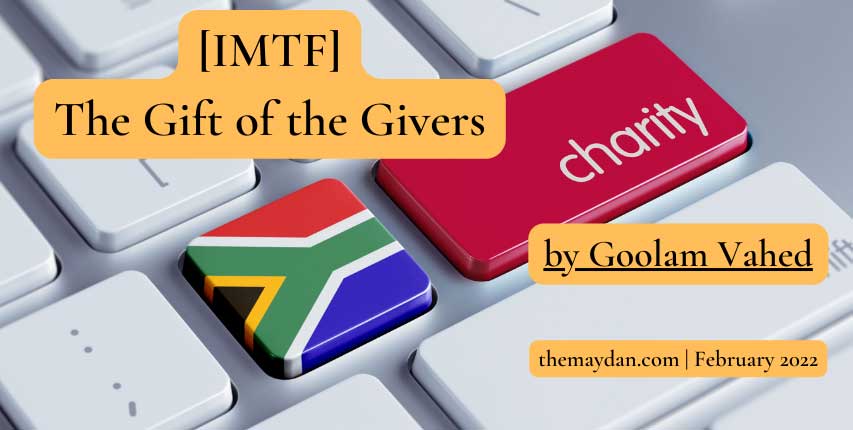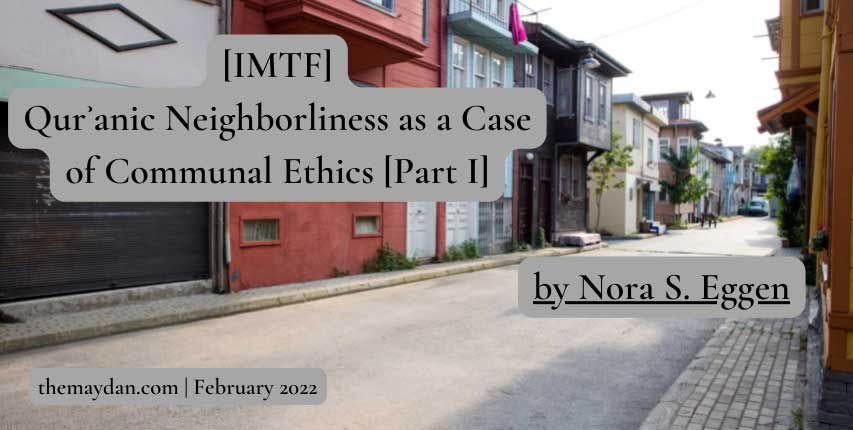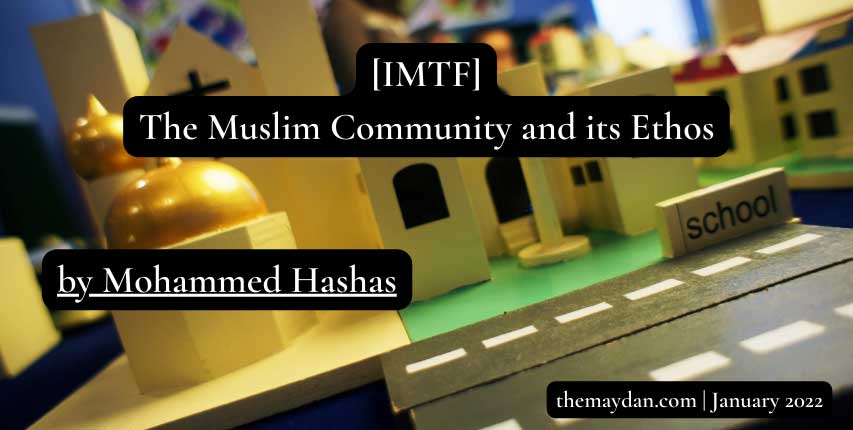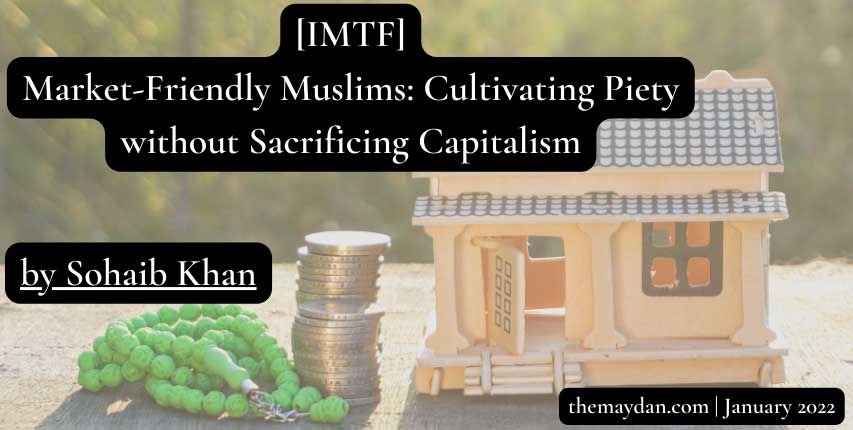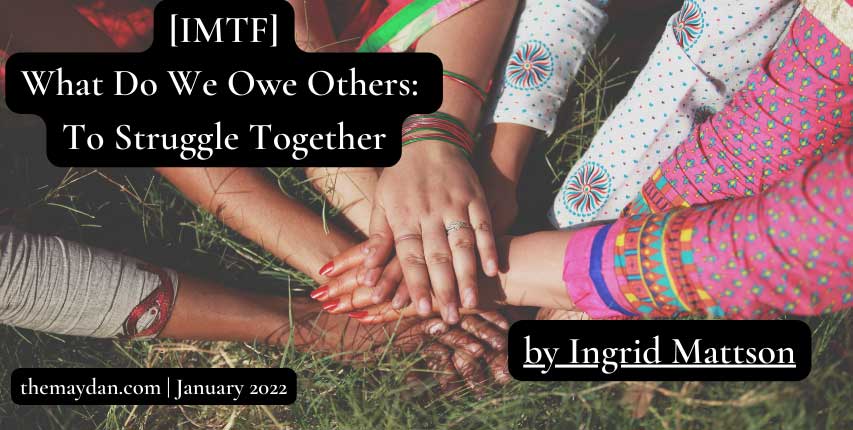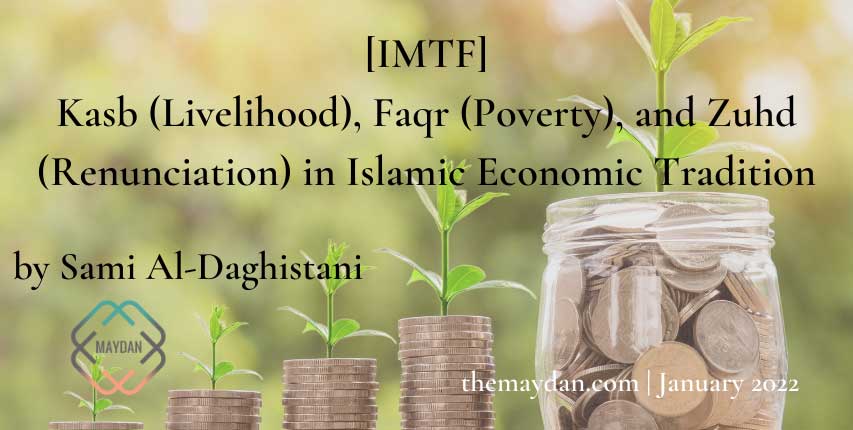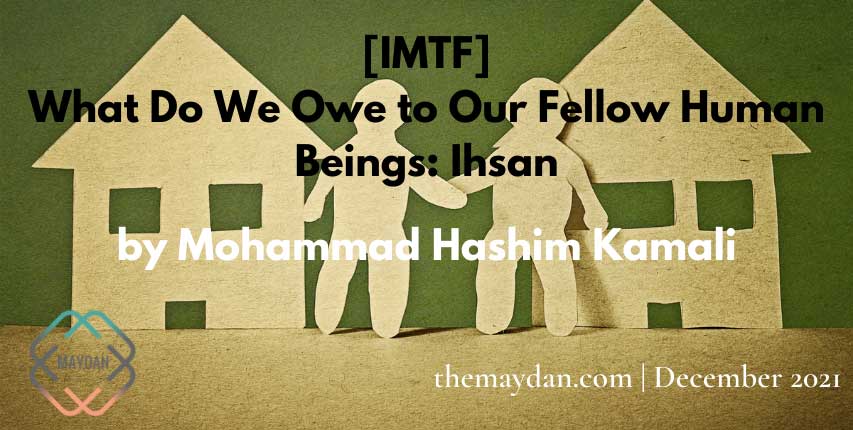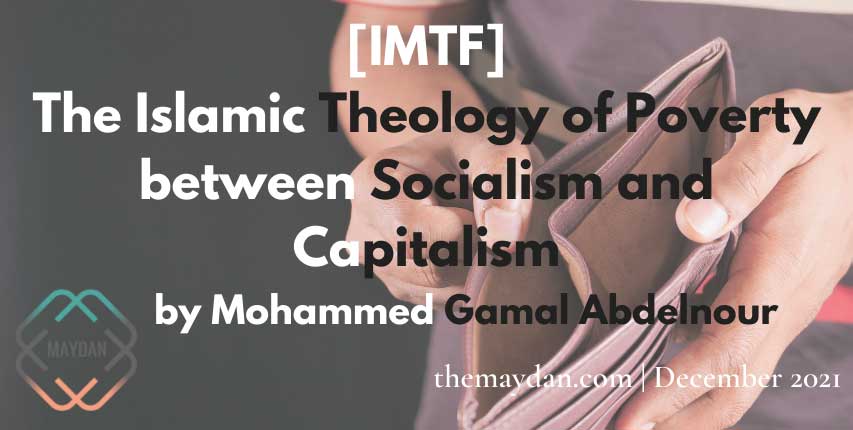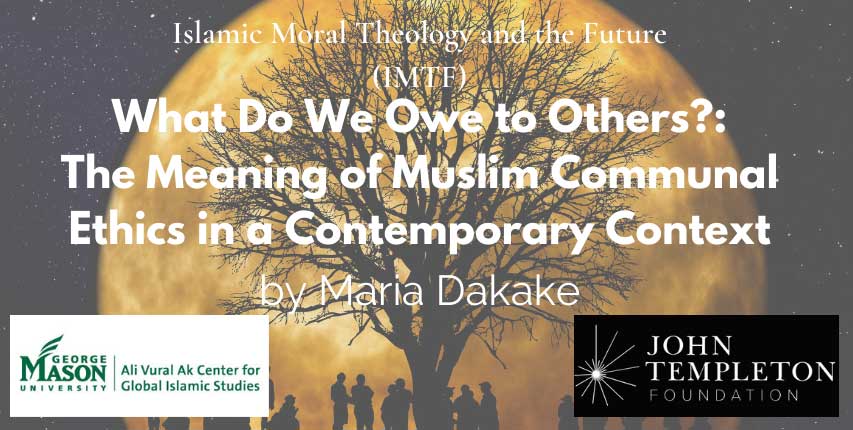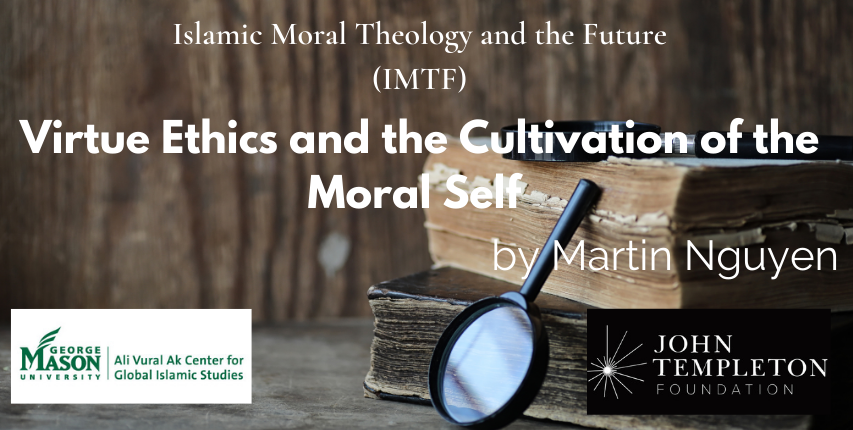All Articles
Introduction By nature, every person’s life is organised in such a way that for his own existence and achievement of the highest perfection, he needs many things that he cannot provide for himself alone. He needs a certain community that […]
In his study of mosques in Europe, Roemer van Toorn noted that a mosque “is not just a house to honour God, but a place to come together, a collective space for the community. In short, a mosque as a […]
“Muslim minorities in the non-Muslim world will ultimately realize that their history has put them in a position somehow reminiscent of the Prophet’s Meccan period. Their isolation will purify and strengthen their belief. It will refine their thought and make […]
Is money dirty? Is it wrong to be rich? How can a Muslim build their wealth in a “halal” or “religiously permissible” way? These are some of the questions that Islamic finance companies, especially those that focus on wealth accumulation, […]
In his Oft-Repenting Ones, Ibn Qudāma (d. 1223) recounts the story of Awlāsī, a pious ascetic from the early centuries of Islam. It so happened that in his youth he stumbled across a sick, homeless man who was lying on […]
My task here is to offer some critical thoughts on the ethics of place and the production of space, with the ‘American mosque’ as a case in point. I have argued in Deconstructing the American Mosque: Space, Gender, and Aesthetics (2002), that the […]
Since the earliest days of Islamic history, Muslims have deliberated over the structure and purpose of the mosque. The Arabic term for mosque, masjid, derives from the Qur’an and translates simply as a place of prostration. In Muslim tradition, as […]
In the twenty-first century, economists have increasingly recognized the profound issue of wealth inequality that afflicts societies worldwide. This realization holds true not only in non-Muslim countries but extends to the Muslim world, where disparities in wealth are apparent both […]
Introduction Atop a rural mesa in Northern New Mexico, where the high desert meets riparian woodlands, there is an adobe mosque. Nubian by design, funded by the Saudi royal family, and built by the hands of an incredibly diverse group […]
Imagine what it would feel like to have AI as your best friend within the next few years. This is what Jim Keller, a former Apple employee and a Silicon Valley guru, predicts.[1] And perhaps one should take such prognostication […]
In the first year of the Islamic Moral Theology and the Future project (IMTF), authors contributing to the part of the project concerned with communal morality and ethics in Muslim contexts discussed various concepts that undergird the Muslim moral “ideal” […]
This past fall, on October 20-22, the first conference in support of the “Islamic Moral Theology and the Future” Project was held at George Mason University. With the invaluable support of the AbuSulayman Center for Global Islamic Studies, Maria Dakake […]
The Muslim umma is internally diverse and reaches across a variety of continents, customs and cultures, yet it retains its sense of unity by virtue of a common set of moral precepts and religious beliefs. This holds true with regard […]
When the COVID-19 pandemic swept the world in 2020, it caused a plethora of unexpected effects which impacted various aspects of life, including education, employment, travel, health, the economy, and even media consumption, information-seeking, and information-sharing. It also widened the […]
In my previous contribution to this forum, I proposed a dialogical approach to understanding Muslim virtue ethics that put Islam’s textual tradition into conversation with the lived practices of Muslims. Since virtue ethics is concerned with character formation and the […]
“Praise be to God I’m no longer on that jāhilī app (aplikasi jahiliah),” the middle-aged man sitting beside me said when he caught a glimpse of me checking Twitter moments before our plane taxied down the runway. For a moment, […]
The Prophet Muhammad’s open and outward-looking worldview has been constricted over centuries into insular dogmas that circumambulate increasingly tighter circles. Contemporary extremists, particularly, seek to hold believers hostage in narrow confines. The Prophet’s establishment of the umma encompassed Medinan Jews; […]
Opportunities for interaction between diverse groups has today reached an unprecedented level due to innovations in communication, transportation, and virtual media. Nonetheless, people’s interactions are often superficial and limited, with the knowledge they gain of each other only surface-level. In […]
Before death takes away what you are given, Give away what there is to give. –– Rumi A number of reports released over the last decade by Oxfam and similar organizations have drawn attention to the mind-boggling disparity of […]
In my previous essay I explored how the Islamic tradition lends itself to multiple interpretations regarding the Islamic theology of poverty. While there are traditions that endorse the acquisition of wealth and praise richness, there exist other traditions that seem […]
Viele Menschen haben im Zuge der Covid-19 Shut Downs und ihren Einschränkungen vor allem in Bezug auf die sozialen Interaktionen, starke Wut und Angst empfunden. In der Pandemie haben Menschen Kontrollverluste erlitten und sind mit ihren Begrenztheiten konfrontiert worden. Zugleich […]
Many people have experienced intense anger and fear in the wake of the Covid-19 shutdowns and their subsequent toll on social interaction. During the pandemic, people suffered a loss of control and were confronted by their limitations. At the same […]
On Modern Islamic Economics Mainstream depictions of economic science and the development of capitalism are by-and-large historically distorted. They ignore power relations and are based upon a particular philosophical understanding of the division of sciences developed under the specific social […]
My neighbor passed away and I did not hear about it until sometime later. We had not really known each other but had been on greeting terms. The deceased was elderly and ill, and had been in the care of […]
Over the past six months, the IMTF online roundtable discussion has brought together a number of Muslim voices to explore the area of inquiry concerning Islamic virtues of the self, specifically with regards to their relevance for understanding and confronting […]
In the first set of essays posted for the IMTF online roundtable discussion on communal ethics, I asked scholars and thinkers from Muslim communities in different geographical regions and contexts to address the basic question of “what we owe to […]
Parts of what is called modern Europe saw the arrival of Jews and Judaism over two thousand years ago. Following which, approximately two thousand years ago, Europe saw the spread of Christianity. Christians of Jewish heritage were the first to […]
Islamic spirituality, in both its principles and practices, establishes an impetus and a framework to design businesses that support a positive social and environmental impact. Among them is the notion of faqr (poverty), raised by Professor Martin Nguyen in his […]
Three centuries of white minority rule in South Africa has left the African majority materially and psychologically impoverished. A record of mismanagement and widespread corruption have resulted in the state’s failure to meet the needs of the poor, while service […]
The neighborhood may be conceived as an intermediate space, a location between the private and the public. Here, an individual extends the immediate and private space of human interaction. The people populating this space are not necessarily part of one’s […]
The meaning of “community” changes as human societies develop new social and political orders. This is true of any term: a part of it remains tethered to past meanings, and a part grows in response to new developments and novel […]
It is one thing to expound the conceptual anatomy of virtue ethics as articulated in Islamic traditions of moral philosophy, mysticism, jurisprudence, etc.; it is another to examine how such articulations are extended and enacted by Muslims seeking to live […]
In The Book of Pious Abstention (Kitāb al-Waraʿ) Aḥmad ibn Ḥanbal (d. 855 CE) is asked what to do if one is in a mosque during Ramadan and a person comes around with (burning) incense from a “disliked” source. In […]
This piece is a response to the initial query of the project on Virtue Ethics and the Cultivation of the Moral Self by Martin Nguyen. In this first response essay, I briefly analyze the state of affairs of contemporary Islamic […]
Many of Islam’s leading principles are premised on the idea of the responsibility, individual or collective, of the faithful to be useful members of society and be good to their fellow humans, which is also why Islam places greater emphasis […]
In The Protestant Ethic and the Spirit of Capitalism, Max Weber argued that it was the Protestant religious ethic, more particularly Calvinism, that acted as a precursor to modern Capitalist economic development, as it saw a moral and a spiritual […]
Moral theology can be understood as the science of cultivating human virtue in relation to a recognized set of absolute, divine, or transcendent principles. Considered both theoretically and practically, the cultivated virtues are simultaneously a means of transforming and beautifying […]
This post and that of Prof. Maria Dakake mark the official beginning of our respective but interrelated inquiries into contemporary Islamic moral theology. Over the course of the next two years, we will each facilitate an ongoing roundtable of Muslim […]

